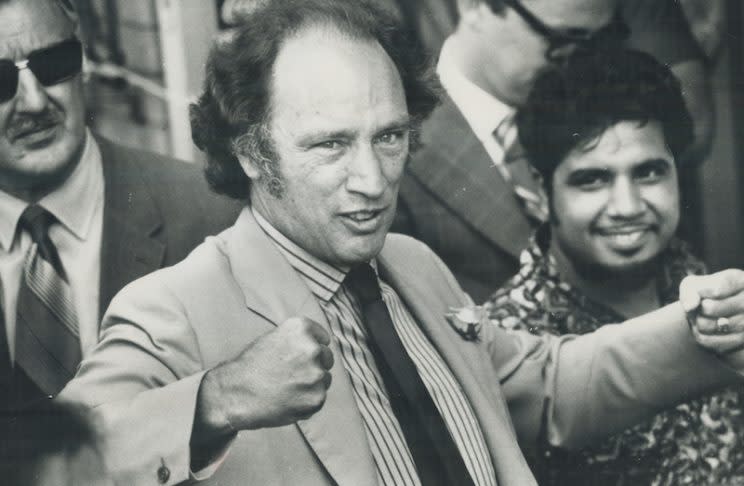Pierre Elliott Trudeau once praised the value of diversity, inclusiveness

The proposed agenda of U.S. president-elect Donald Trump — mass deportation of illegal immigrants, a ban on Muslim migrants, and a wall along the border with Mexico — has alarmed many all over the world. Those looking for relief from the divisive rhetoric have found it in a surprising place: the text from a 45-year-old speech by Pierre Elliott Trudeau.
On Oct. 9, 1971, the 15th prime minister of Canada spoke to an audience at the Ukrainian-Canadian Congress regarding an idea that he had made a part of his official policy just one day earlier. In that speech, Trudeau clearly defined Canadian multiculturalism, which hails the value of diversity over sameness in no uncertain terms.
One passage from the text seems to reveal a stark contrast to the policies being touted south of the border.
“There is no such thing as a model or ideal Canadian,” says Trudeau. “What could be more absurd than the concept of an ‘all-Canadian’ boy or girl? A society which emphasizes uniformity is one which creates intolerance and hate. A society which eulogizes the average citizen is one which breeds mediocrity.”
The speech has been widely circulated on social media in recent days, with many hailing it as a much-needed message of acceptance and love in the face of division and hate.
America, be like Pierre Elliot Trudeau. pic.twitter.com/cMjMaCmhES
— (((Christine))) (@ChiChiMontreal) November 21, 2016
In 1971, Pierre Elliot Trudeau spoke on an inclusive Canada. This continues to be relevant today pic.twitter.com/Vybqn5Xvjv
— Imagaijin2010 (@2010imagaijin) November 22, 2016
While the idea of multiculturalism may seem like an old concept to some Canadians in 2016, at the time of Trudeau’s speech it was almost revolutionary. The diversity Canada has mostly come to accept did not exist prior to the 1950s and ’60s, when changes to immigration policy opened the doors to a more diverse group of immigrants who were not always white as they had been in the past.
The ’60s also was a period of of unusually high tension between French and English Canada, with policy-makers pushing the idea of a “bicultural and bilingual” country to ease the strain.
But Trudeau had his own plans.
On Oct. 8, 1971 — one day before his speech to the Ukrainian-Canadian Congress — Trudeau rebuked biculturalism in favour of multiculturalism and pushed bilingualism in the House Commons to mark the beginning of the new official Canadian government policy.
Here’s an excerpt from that landmark announcement:
“There cannot be one cultural policy for Canadians of British or French origins, another for the originals, and yet a third for all others. For although there are two official languages, there is not official culture, nor does any ethnic group take precedence over any other.”
Just 78 days after his memorable speech in the Commons, Trudeau’s first child — current Canadian Prime Minister Justin Trudeau — was born. Nearly half a century later, the sentiment of multiculturalism holds true in Canada.
It seems that Canadian political speeches from decades ago are giving the world a dose of hope today. Who would have thought?



